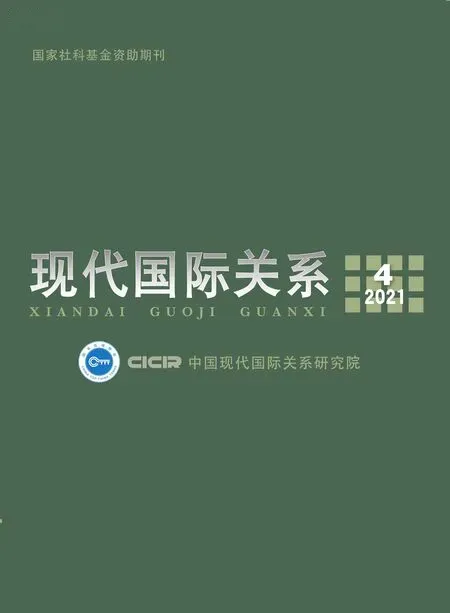Abstracts
Abstract:As China embarks on the new journey to move toward the second centenary goal,the background,geographical order and capacity of China’s participation in global ocean governance will experience profound changes. COVID-19 pandemic has accelerated the evolution of great changes unseen in a century. The great power game will continue to play out at sea.The concept and practice of global ocean governance will continue to be under pressure, and security issues will become more prominent. China’s participation in global ocean governance has been endowed with more moral responsibilities and expectations. In the new development stage of building a modern socialist country in all respects, the objectives, principles and paths of China’s participation in global ocean governance will be further clarified.In the new development pattern of“Dual Circulation Strategy,”China will have more resources,experience and policy means to deal with ocean governance.In the new journey of realizing the great rejuvenation of the Chinese nation and building a major maritime power,the“maritime community with a shared future”proposed by China will enter a new stage from its conception to its implementation. Chinese approach and contribution will be more prominent in global ocean governance.
Keywords:the Second Centenary Goal,global ocean governance,Chinese approach
Abstract:As a policy agenda set by Joe Biden and his team during the 2020 presidential campaign,“a foreign policy for the middle class”has become the policy commitment that the Biden administration pursues. Its economic and trade policies are reflected in enhancing U.S. competitiveness, making new rules of economic globalization, and uniting the economies of“democratic countries,”while in security and defense policies, it is manifested in emphasizing“diplomatic”rather than“military”means and maintaining restraint.“A foreign policy for the middle class”agenda can be seen as the compromise on the Trump administration’s foreign policy.It aims to respond to the intensification of the domestic and international problems and the deterioration of the international image and status of the United States,and to help integrate the internal differences of the Democratic Party.It must be noted that there are also challenges such as the wide range of interest-conflicting groups to be served, the inherent contradictions in realizing the goal of strengthening the alliance,and the difficulty of coordination within the U.S.government. Due to the limitations of the current U.S. political framework and decision-making ecology,restructuring foreign policy alone will not achieve the goal of serving the middle class.
Keywords:Joe Biden,foreign policy,middle class,inward-oriented
Abstract: Alliance relationship is an important support for the U.S. hegemonic strategy, and the Asia-Pacific alliance is an important tool for the U.S. to contain its competitors and maintain the order in the Asia-Pacific region.Since the Biden administration took office,in order to alleviate the impact of the Trump administration on the Asia-Pacific alliance, it has continuously adjusted its Asia-Pacific alliance policy. First, in terms of policy ideas,it downplays“America First”and emphasizes consensus on values;second,in terms of alliance management,it reduces the coercion of power and emphasizes the institutional constraints and the coordination of interests;third,in terms of alliance goals,it pays more attention to global governance cooperation;fourth,in terms of cooperation model, it maintains the framework of the Indo-Pacific Strategy and expands the Asia-Pacific alliance system.These adjustments can also make limited improvement of the alliance relationship,increase the uncertainty of the Sino-US relationship,and aggravate the instability of the situation in the Asia-Pacific region.However,the Biden administration faces many difficulties in repairing the Asia-Pacific alliance due to the domestic problems of the United States,the internal contradictions of the alliance,and the concerns of the Asia-Pacific Allies.
Keywords:Biden Administration,Asia-Pacific alliance,Asia-Pacific security,Sino-US relations
Abstract: Russia-India relations are relatively stable among major powers. However, in recent years, due to the profound adjustment of the international and regional strategic environment, the two countries’foreign strategies have become more and more divergent. Besides, the traditional momentum of bilateral cooperation has weakened, and the differences between the two countries have gradually increased and come into the open. In particular, different views and policies on the“Indo-Pacific”have become major strategic differences between the two countries. In the foreseeable future, the foundation of Russia-India strategic cooperation may not be fundamentally shaken, but the trend of the two countries’foreign strategies“drifting apart”will be difficult to reverse, and the differences between the two countries will exist and possibly widen.The change of Russia-India relations will affect the international and regional situation.For China, the overall stability of Russia-India relations is in its interest.
Keywords:Russia-India Relations,Indo-Pacific,China-US Relations,Major Power Relations

